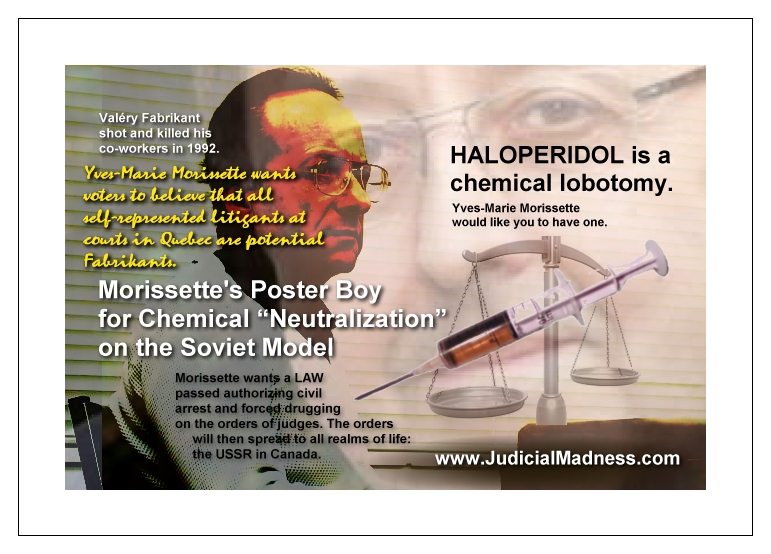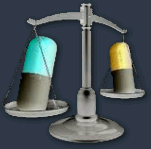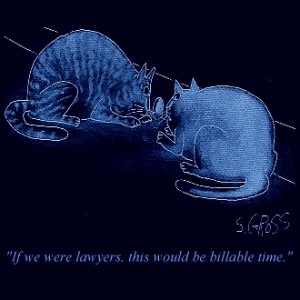Every person has a right to a full and equal, public and fair hearing
(title for widget) Articles 23 et seq., R.S.Q., chapter C-12, right to a “public” hearing
Updated to 1 December 2006
GET the current one 2015 December
Citation: Charter of human rights and freedoms, R.S.Q. c. C-12
Information about this text: Consolidation: Updated to 1 December 2006
Enabled Regulations: 7 Regulations
Version downloaded by CanLII on 2007-01-17
© Éditeur officiel du Québec
This document is not the official version.
Updated to 1 December 2006
R.S.Q., chapter C-12
CHAPTER III
JUDICIAL RIGHTS
Impartial hearing before independent tribunal.
23. Every person has a right to a full and equal, public and fair hearing by an independent and impartial tribunal, for the determination of his rights and obligations or of the merits of any charge brought against him.
Sittings in camera.
The tribunal may decide to sit in camera, however, in the interests of morality or public order.
1975, c. 6, s. 23; 1982, c. 17, s. 42; 1993, c. 30, s. 17.
Grounds for deprivation of liberty.
24. No one may be deprived of his liberty or of his rights except on grounds provided by law and in accordance with prescribed procedure.
1975, c. 6, s. 24.
Search and seizure.
24.1. No one may be subjected to unreasonable search or seizure.
1982, c. 61, s. 7.
Treatment of person arrested.
25. Every person arrested or detained must be treated with humanity and with the respect due to the human person.
1975, c. 6, s. 25.
Right to separate treatment.
26. Every person confined to a house of detention has the right to separate treatment appropriate to his sex, his age and his physical or mental condition.
1975, c. 6, s. 26.
Person awaiting outcome of his trial to be kept apart.
27. Every person confined to a house of detention while awaiting the outcome of his trial has the right to be kept apart, until final judgment, from prisoners serving sentence.
1975, c. 6, s. 27.
Information on grounds of arrest.
28. Every person arrested or detained has a right to be promptly informed, in a language he understands, of the grounds of his arrest or detention.
1975, c. 6, s. 28.
Rights of accused person.
28.1. Every accused person has a right to be promptly informed of the specific offence with which he is charged.
1982, c. 61, s. 8.
Right to advise next of kin.
29. Every person arrested or detained has a right to immediately advise his next of kin thereof and to have recourse to the assistance of an advocate. He has a right to be informed promptly of those rights.
1975, c. 6, s. 29; 1982, c. 61, s. 9.
Right to be brought before tribunal.
30. Every person arrested or detained must be brought promptly before the competent tribunal or released.
1975, c. 6, s. 30; 1982, c. 61, s. 10.
Right to be released on undertaking.
31. No person arrested or detained may be deprived without just cause of the right to be released on undertaking, with or without deposit or surety, to appear before the tribunal at the appointed time.
1975, c. 6, s. 31.
Habeas corpus.
32. Every person deprived of his liberty has a right of recourse to habeas corpus.
1975, c. 6, s. 32.
Right to trial.
32.1. Every accused person has a right to be tried within a reasonable time.
1982, c. 61, s. 11.
Presumption of innocence.
33. Every accused person is presumed innocent until proven guilty according to law.
1975, c. 6, s. 33.
Self-incrimination.
33.1. No accused person may be compelled to testify against himself at his trial.
1982, c. 61, s. 12.
Right to advocate.
34. Every person has a right to be represented by an advocate or to be assisted by one before any tribunal.
1975, c. 6, s. 34.
Full and complete defence.
35. Every accused person has a right to a full and complete defense and has the right to examine and cross-examine witnesses.
1975, c. 6, s. 35.
Interpreter.
36. Every accused person has a right to be assisted free of charge by an interpreter if he does not understand the language used at the hearing or if he is deaf.
1975, c. 6, s. 36; 1982, c. 61, s. 13.
Non-retroactivity of law.
37. No accused person may be held guilty on account of any act or omission which, at the time when it was committed, did not constitute a violation of the law.
1975, c. 6, s. 37.
Res judicata.
37.1. No person may be tried again for an offence of which he has been acquitted or of which he has been found guilty by a judgment that has acquired status as res judicata.
1982, c. 61, s. 14.
Lesser punishment.
37.2. Where the punishment for an offence has been varied between the time of commission and the time of sentencing, the accused person has a right to the lesser punishment.
1982, c. 61, s. 14.
Self-incrimination.
38. No testimony before a tribunal may be used to incriminate the person who gives it, except in a prosecution for perjury or for the giving of contradictory evidence.
1975, c. 6, s. 38; 1982, c. 61, s. 15; 1989, c. 51, s. 1.




